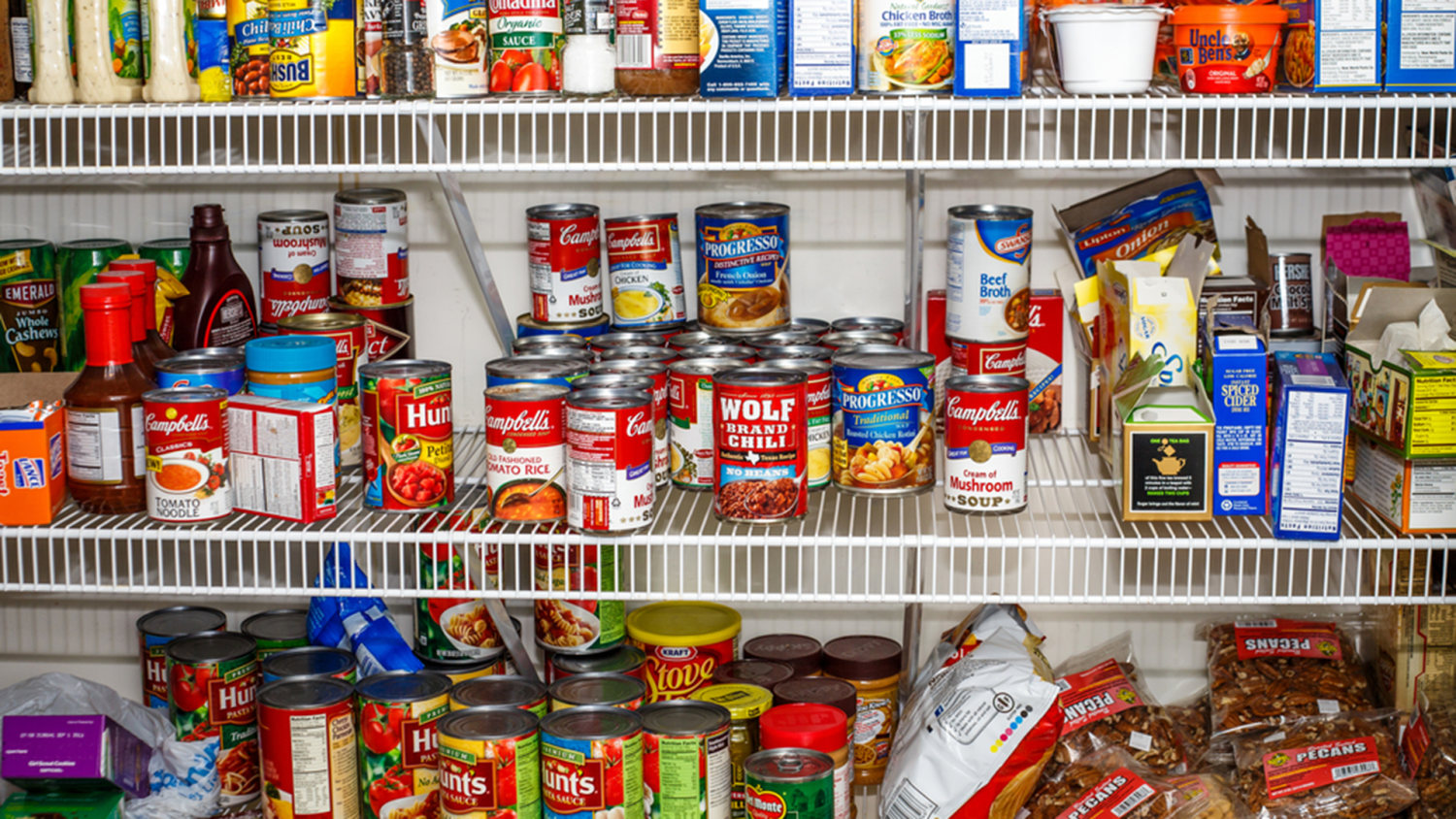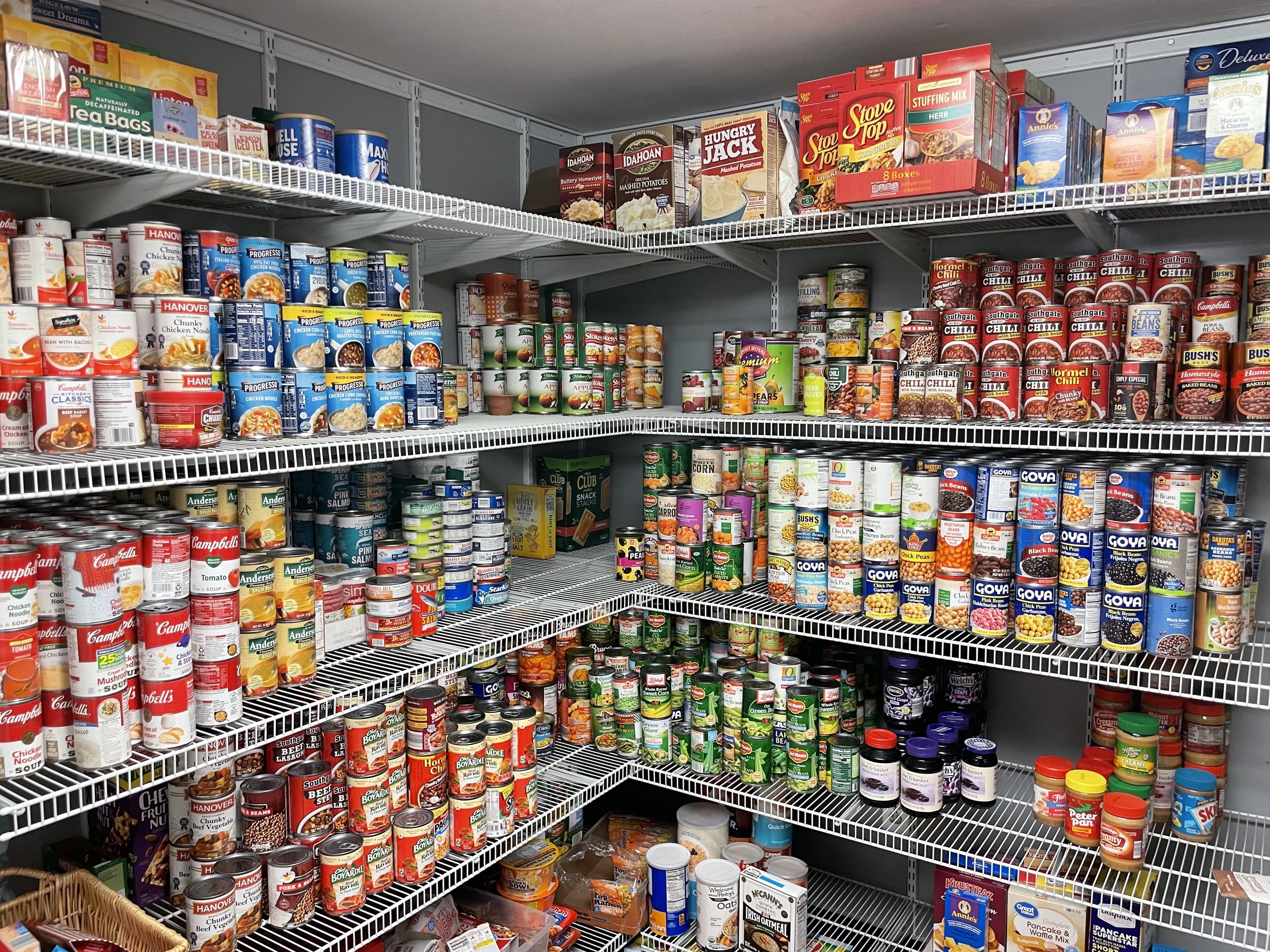Why Food Pantry Lockhart is a Vital Resource for the Neighborhood
Why Food Pantry Lockhart is a Vital Resource for the Neighborhood
Blog Article
Why Sustaining Your Neighborhood Food Pantry Is Vital for Assisting Those in Requirement
The relevance of supporting regional food kitchens can not be overstated, especially in the context of food instability, which impacts a disconcerting variety of individuals and families within our neighborhoods. These essential sources not only provide instant remedy for appetite but additionally add to broader social benefits, consisting of boosted wellness and academic end results. As we explore the complex function of food cupboards, it ends up being apparent that their influence extends much past simply dispersing food (Food Pantry Lockhart). Comprehending this much deeper connection might motivate a reconsideration of how we engage with and sustain these important organizations.
Recognizing Food Insecurity
Food insecurity influences approximately 10.5% of families in the United States, showing a significant public health and wellness concern that transcends simple hunger. It describes the absence of regular accessibility to enough food for an energetic, healthy and balanced life. This condition can result in a variety of damaging outcomes, consisting of poor health and wellness, raised medical care costs, and lessened academic efficiency amongst kids.
The reasons for food insecurity are multifaceted, typically coming from financial elements such as unemployment, underemployment, and poverty. Geographic place can likewise play an important function, with food deserts-- locations with minimal accessibility to inexpensive and nutritious food-- aggravating the problem - Food Pantry Lockhart. In addition, systemic factors, including racial and social inequities, add to the disproportionate effect of food instability on marginalized areas
Addressing food insecurity is not just about increasing food supply; it requires a comprehensive approach that incorporates financial stability, education, and community assistance. Food insecurity not just impacts private health yet additionally has broader effects for societal wellness and efficiency. Comprehending its complexity is necessary for establishing efficient interventions and fostering lasting remedies that make certain all individuals have reputable accessibility to nutritious food.
The Duty of Food Pantries
Neighborhood food pantries act as important lifelines for people and families dealing with food instability. They offer important food things to those that may struggle to afford ample nutrition as a result of financial hardship, unemployment, or unpredicted situations. By dispersing food at no charge, these organizations assist alleviate hunger and stop the negative health and wellness influences related to insufficient diets.
Food kitchens usually partner with local ranches, supermarket, and neighborhood organizations to resource a variety of healthy food things, consisting of fresh produce, milk, and proteins. This partnership makes certain that pantry clients get not just nourishment yet additionally much healthier choices that add to general health.
In addition, food kitchens function as area centers, promoting connections among homeowners and offering a feeling of dignity to those in need. Many cupboards use additional sources, such as nourishment education and learning and references to social solutions, assisting clients navigate their challenges better.
Essentially, food cupboards play a complex function in combating food insecurity. They not just address prompt hunger however additionally empower families and individuals to improve their circumstances, thereby promoting community durability and cohesion.

Advantages of Supporting Food Pantries

Sustaining food cupboards not only nourishes those in requirement yet likewise reinforces the textile of the community. By offering important food resources, food pantries reduce cravings and lower food instability, which is critical for the health and Check This Out well-being of individuals and households. Accessibility to nourishing food adds to improved physical health and wellness, much better academic outcomes for children, and boosted psychological health, consequently cultivating a more productive and engaged neighborhood.
In addition, sustaining food pantries promotes social cohesion. These organizations function as hubs for area engagement, combining volunteers, donors, and receivers in a common goal to combat appetite. This collaboration can damage down barriers, foster understanding, and develop connections amongst varied area participants.
In addition, contributions to food kitchens, whether in the form of food, funds, or time, boost the neighborhood economic climate. Numerous food pantries focus on sourcing from local manufacturers, therefore supporting local farming and companies. This creates a cycle of assistance that profits not only those in need yet the community in its entirety.
Exactly How to Obtain Included
Interaction with food pantries can take lots of types, permitting teams and people to make a meaningful influence in their areas. Monetary donations are also vital, as they make it possible for food kitchens to purchase fresh produce and crucial supplies.
Volunteering your time is one more impactful way to support neighborhood food pantries. Many organizations depend on volunteers for sorting, packing, and dispersing food. This hands-on involvement not just helps the cupboard however likewise promotes a feeling of community. Additionally, consider arranging food drives within your area, work environment, or school team to raise awareness and gather resources.
Partnerships with neighborhood organizations can better enhance assistance for food kitchens. By taking these teams, people and actions can significantly boost Look At This the efforts of neighborhood food pantries and assist those in need.
Area Influence and Link
Acknowledging the extensive influence of food cupboards on neighborhood well-being is vital for cultivating a spirit of link and partnership. Food cupboards offer not only as important resources for those dealing with food instability but also as centers for area engagement. They bring together diverse teams-- volunteers, benefactors, and customers-- developing an environment where individuals can sustain and connect each other.
The effect of food kitchens extends beyond mere arrangement of food; they work as a driver for social communication. By taking part in cupboard campaigns, area participants can establish relationships that go beyond socioeconomic obstacles. This network of assistance helps to dismantle the preconception typically connected with food help, promoting an environment of approval and understanding.
As people unite in their initiatives to support neighborhood food cupboards, they cultivate a feeling of common objective and responsibility, enhancing the idea that everyone use this link has a function to play in making sure that no one goes hungry. Eventually, sustaining food cupboards reinforces the material of the neighborhood as a whole.
Verdict
Sustaining regional food kitchens is vital in combating food insecurity and boosting the well-being of prone populations. By ensuring accessibility to nourishing food, these companies add to improved health and wellness outcomes, instructional efficiency, and psychological health. Engagement with food kitchens fosters neighborhood connections, promoting social cohesion and equity. Inevitably, the cumulative effort to reinforce these essential resources plays a significant role in building a much healthier, extra resilient society where all people have the opportunity to flourish.

Report this page